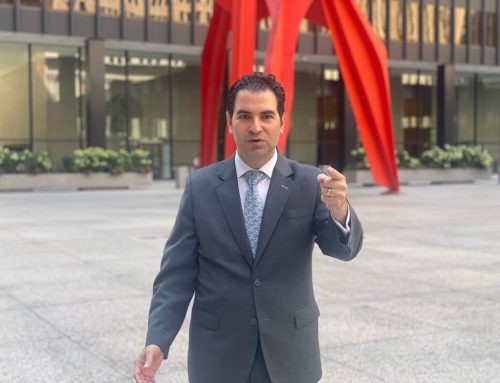BC was charged with Possession of a stolen motor vehicle after the car he was driving was pulled over for not having proper license plates. After the stop, officers observed that the car may be stolen. The police observed that the bill of sale BC showed them was for a different vehicle, that the vehicle was a 2020 model, but all of his paperwork referenced a 2016 model and that the VIN number on the vehicle had been altered. The Officers determined the real VIN number and that the car had been reported stolen.
BC hired our firm, and we took the case to a preliminary hearing. At the hearing, the officer testified to the above facts. Feeling confident in her case, the Assistant State’s Attorney rested on her direct examination. Attorney Aaron Rosenblatt then stepped up and conducted a cross-examination. Mr. Rosenblatt asked a few questions to help explain the scene of the arrest. He asked questions to help explain what the officers learned when they made their observations and how they could make their observations. The officer testified that BC made statements. Mr. Rosenblatt asked the officer to explain those statements to the Court. Mr. Rosenblatt knew that BC’s statement was that he purchased the car for $20,000.00, but he could not remember who sold him the car.
In general, at a preliminary hearing, the State’s Attorney’s Office only has to show that a crime occurred and that the defendant is the person who probably committed the crime. At this point, the judge was ready to rule on behalf of the state. Mr. Rosenblatt asked the court if he could argue before the Court’s ruling. The Judge allowed Mr. Rosenblatt to make an argument. Mr. Rosenblatt started to argue; he explained that the State is required to show three things: 1) that the car involved was stolen, 2) that the defendant was in possession of it, and 3) that the defendant knew the car had been stolen. Mr. Rosenblatt explained that the state provided some information that the car was stolen, and that the defendant was in possession of the car. However, the State’s Attorney’s Office failed to show any evidence that BC knew the car was stolen. Mr. Rosenblatt pointed out that the officer testified that BC explained that he had paid a lot of money to buy the car. Mr. Rosenblatt asked the judge to rule for a finding of “no probable cause.” The Judge asked the Assistant State’s Attorney (ASA) if she would like to respond. The ASA argued that BC knew or should have known the car was stolen because the VIN had been tampered with. Judge asked Mr. Rosenblatt if he had a rebuttal. Mr. Rosenblatt, seeing the finish line in sight, argued that no one checks the VIN on a car. He explained that most car owners do not even know where you find your VIN and that he had never heard anyone confirming that a VIN of their car was authentic. The Judge agreed with Mr. Rosenblatt, and the case was dismissed!







Leave A Comment